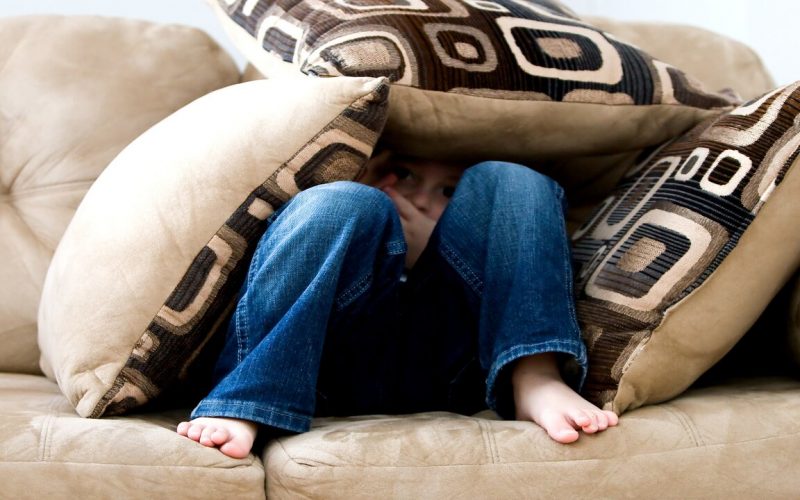Is your child struggling to attend school as a result of anxiety? Well, it’s not an uncommon case among children in the UK. Many students in the UK have similar experiences of anxiety which have made going to school quite challenging.
Going to school is an important part of achieving life skills and becoming a better version of oneself. Most academic entities create a fun and lively environment for students to learn. It becomes a thing of concern when your child won’t go to school.
Anxiety can be a problem that can impact negatively on a student; however, it can be fixed.
This writing will offer practical solutions on how to handle your child’s anxiety issues, navigate communication in school, and provide resources that will help them feel more comfortable while learning.
Table of contents
- What is School Anxiety?
- How do you deal with school refusal due to anxiety in the UK?
- My Child Won’t Go to School Because of Anxiety UK? – Advice from a Student
- Is it bad to not go to school because of anxiety?
- How can I treat my child’s anxiety naturally?
- When should I be concerned about my child’s anxiety?
- What triggers school anxiety?
- Can a child recover from anxiety?
- Conclusion
- Frequently Asked Questions
- References
- Recommendations
What is School Anxiety?
School anxiety is a common condition that affects students of all ages. It is characterized by excessive fear and worries about school and the activities associated with it, such as making friends, speaking in public, or taking tests. Also known as school refusal, School anxiety is a condition where a child experiences intense fear or worry about attending school.
Anxiety surrounding school is common and can affect any child, regardless of age, grade level, or academic achievement. For some students, however, school anxiety is so severe that it interferes with their ability to learn and function at school.
Academic pressure, Social anxiety, and Bullying are some major causes of school anxiety. Once you notice its symptoms, you should help your ward walk through conquering it.
Read Also: Student Food Budget: How Much Do Students Spend on Food?
How do you deal with school refusal due to anxiety in the UK?
To deal with school refusal due to anxiety, you must first discover its causes. By diagnosing its causes, you can take the right step towards helping your ward.
By watching out closely for physical, behavioral, or emotional symptoms, you can deduce the exact cause of school refusal.
Fear, worry, and sadness are usually symptoms of social anxiety from bullying while students exhibiting school anxiety from academic pressure tend to show behavioral symptoms.
Here are a few things you can do to deal with school refusal:
- Be supportive and understanding. It is important to let your child know that you understand their anxiety and that you are there to help them. Avoid forcing them to go to school or shaming them for their anxiety.
- Work with your child to identify their triggers. Once you know what is making your child anxious, you can start to develop strategies for helping them cope. For example, if your child is anxious about speaking in public, you could practice giving presentations at home or in a small group.
- Help your child develop coping skills. There are several relaxation techniques and other coping strategies that can help children manage their anxiety. Some common coping skills include deep breathing, visualization, and positive self-talk.
- Work with your child’s school. Teachers and other school staff can help to create a supportive environment for your child and provide accommodations if needed. For example, your child may be allowed to take breaks more often or to sit in a quiet area of the classroom.
- Seek professional help if needed. If your child’s anxiety is severe or interfering with their daily life, it is important to seek professional help from a therapist or counselor. A therapist can teach your child additional coping skills and help them develop a plan for gradually returning to school.
Read Also: 15 Best Holiday Destinations For Students in 2024
My Child Won’t Go to School Because of Anxiety UK? – Advice from a Student
Watching your little one struggle with school anxiety can be overwhelming. As a student, I have had my fair share of it. School can be a scary place, especially if you’re feeling anxious.
But this is what you should do as a parent if your child has social anxiety:
- Be patient and understanding
- Talk to your child about their anxiety
- Help your child develop coping skills
- Work with your child’s school
- Seek professional help if needed
Read Also: Do Students Pay Tax? Answers to Commonly Asked Questions for International Students
Is it bad to not go to school because of anxiety?
It’s not inherently “bad” to not go to school due to anxiety. Anxiety is a valid and real emotional response, and it’s important to acknowledge and address it.
When students miss school due to anxiety, they fall behind academically and miss out on important social and emotional development. They may also have difficulty keeping up with their peers and may be at risk of dropping out of school altogether.
You need to conquer your social anxiety so you don’t miss out on all the importance that comes with going to school. It is bad because you will miss out on academic achievement, social development, and emotional development; the core reasons you need to attend a school.
Read Also: How Do I Know if My Child is Suitable For Grammar School?
How can I treat my child’s anxiety naturally?
There are several natural ways to treat your child’s anxiety. These include:
- Relaxation techniques: Some relaxation techniques can help children manage their anxiety, such as deep breathing, meditation, and progressive muscle relaxation.
- Exercise: Exercise is a great way to reduce stress and anxiety. Aim for at least 30 minutes of moderate-intensity exercise most days of the week.
- Diet: Eating a healthy diet can help to improve mood and reduce anxiety. Avoid processed foods, sugary drinks, and caffeine. Instead, focus on eating plenty of fruits, vegetables, and whole grains.
- Sleep: Getting enough sleep is essential for managing anxiety. Aim for 8-10 hours of sleep per night.
- Nature: Spending time in nature has been shown to reduce stress and anxiety. Take your child for walks in the park, play in the backyard, or simply sit outside and enjoy the fresh air.
- Herbal remedies: Some herbal remedies, such as chamomile and lavender, are effective in reducing anxiety. Talk to your doctor or a qualified herbalist before giving your child any herbal remedies.
When should I be concerned about my child’s anxiety?
You should be concerned about your child’s anxiety if it significantly impacts their daily life and well-being.
If you observe any of these signs and they persist over an extended period, you should be concerned about your child’s anxiety.
- Persistent and Intense Symptoms: If your child consistently experiences intense anxiety that interferes with their ability to function or enjoy daily activities. Physical signs like stomachaches, headaches, or other discomforts that appear to be linked to anxiety should be addressed.
- Avoidance Behavior: If your child actively avoids situations or places due to anxiety, such as avoiding school or social activities. Seek help if noticeable changes in behavior, mood swings, or becoming withdrawn or irritable without a clear reason become reoccurring.
- Disruption in Daily Activities: You should be concerned if anxiety is preventing your child from participating in normal daily routines or activities. A significant decline in academic performance or a refusal to attend school due to anxiety is a thing of concern.
- Physical Health Concerns: If anxiety is leading to physical health issues or affecting sleep patterns seek medical help immediately. Also, you should be worried if they show regression in behaviors or skills that they had previously mastered.
Read Also: What Happens if My 17-Year-Old Child Leaves Education in UK?
What triggers school anxiety?
School anxiety triggers can vary from child to child. A child’s triggers are often the initial cause. Some common triggers include:
- Academic pressure: Students may feel anxious about performing well in school, meeting expectations, or keeping up with their peers.
- Social anxiety: Students may be worried about making friends, fitting in, or being judged by their peers.
- Bullying: Students who are bullied at school may feel anxious about going to school or participating in school activities.
- Learning disabilities: Students with learning disabilities may feel anxious about falling behind academically or not being able to understand the material.
- Mental health conditions: Students with mental health conditions such as generalized anxiety disorder or social anxiety disorder may be more likely to experience school anxiety.
- Specific phobias: In extreme cases, a child may have a specific phobia related to something related to school that induces school anxiety. For example, a child with a fear of speaking in public may feel anxious about giving presentations in class.
Can a child recover from anxiety?
Yes, a child can recover from anxiety. Most children who experience anxiety can overcome it with the right support and treatment. Treatment options available for anxiety in children depend on the cause and symptoms the child is exhibiting.
While therapy can teach children coping skills and strategies for managing their anxiety, medication can reduce the symptoms of anxiety.
Also, medication can be used in conjunction with therapy to help children manage their anxiety and learn coping skills. In addition, simple lifestyle changes can help to reduce anxiety, such as getting regular exercise, getting enough sleep, and eating a healthy diet.
Conclusion
Living above anxiety takes a lot of time and patience, especially for young people. It’s a progressive journey of healing. Help is available if anxiety is preventing your child’s interest in schooling.
By working with the school or therapists, you can help the child overcome the problem and create a positive environment of learning where the child can thrive.
Frequently Asked Questions
Yes, school refusal is common among children with anxiety in children. It’s important to address this issue promptly to prevent further distress
The key difference lies in the intensity and consistency of the child’s distress. School refusal is marked by extreme emotional reactions and persistent resistance to attending school.
Stay patient, and reassuring, and consistently communicate your support. Celebrate small victories and acknowledge your child’s efforts in facing their anxiety. Remember, you’re in this together.
References
- Parent Kind.org.UK – School anxiety and refusal
- Young Minds.Org – A guide for parents School anxiety and refusal





